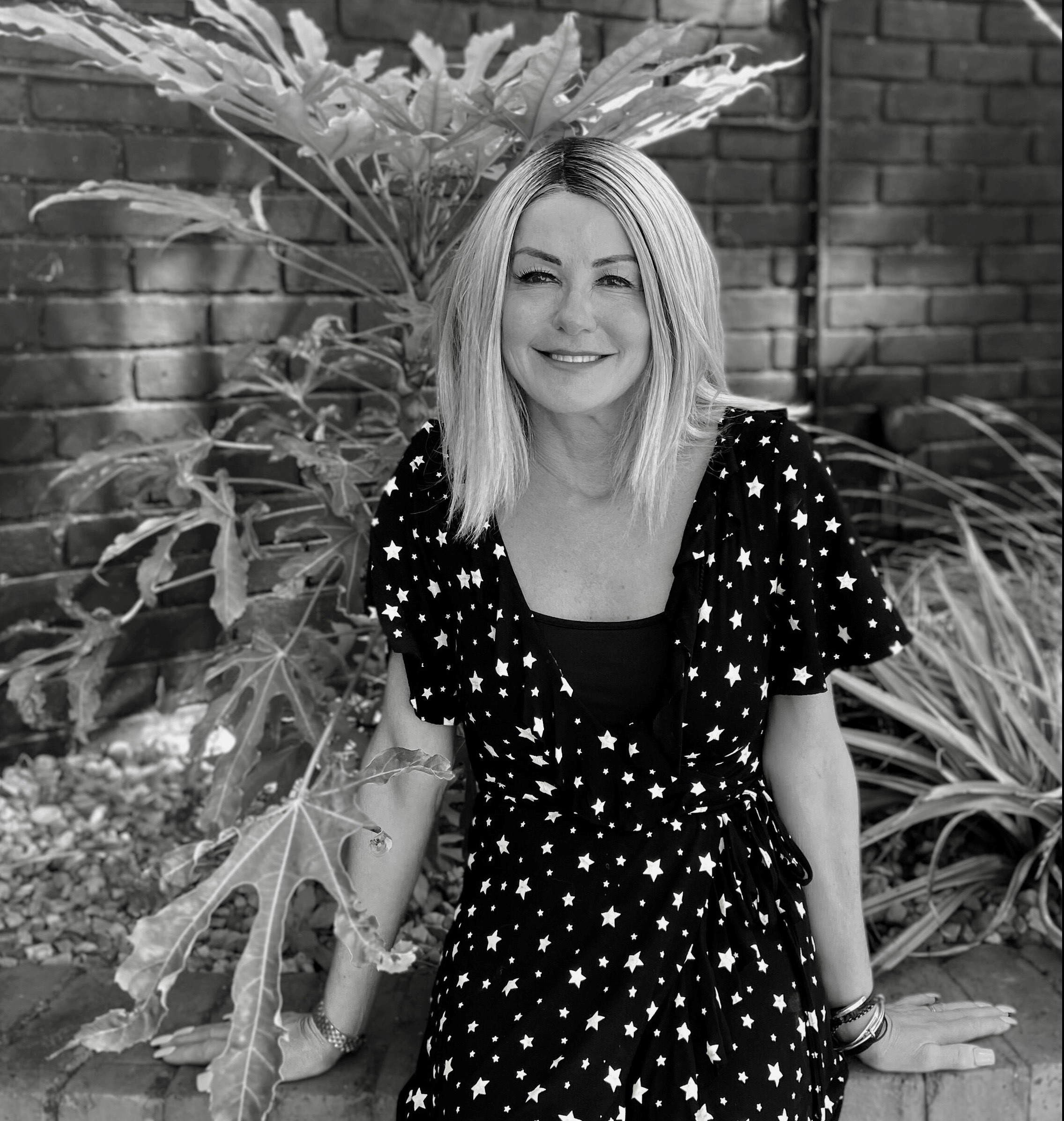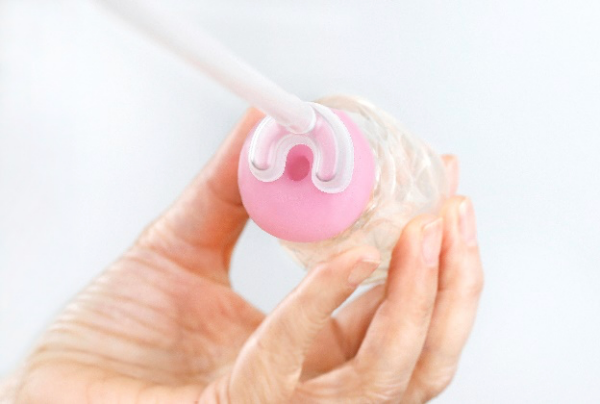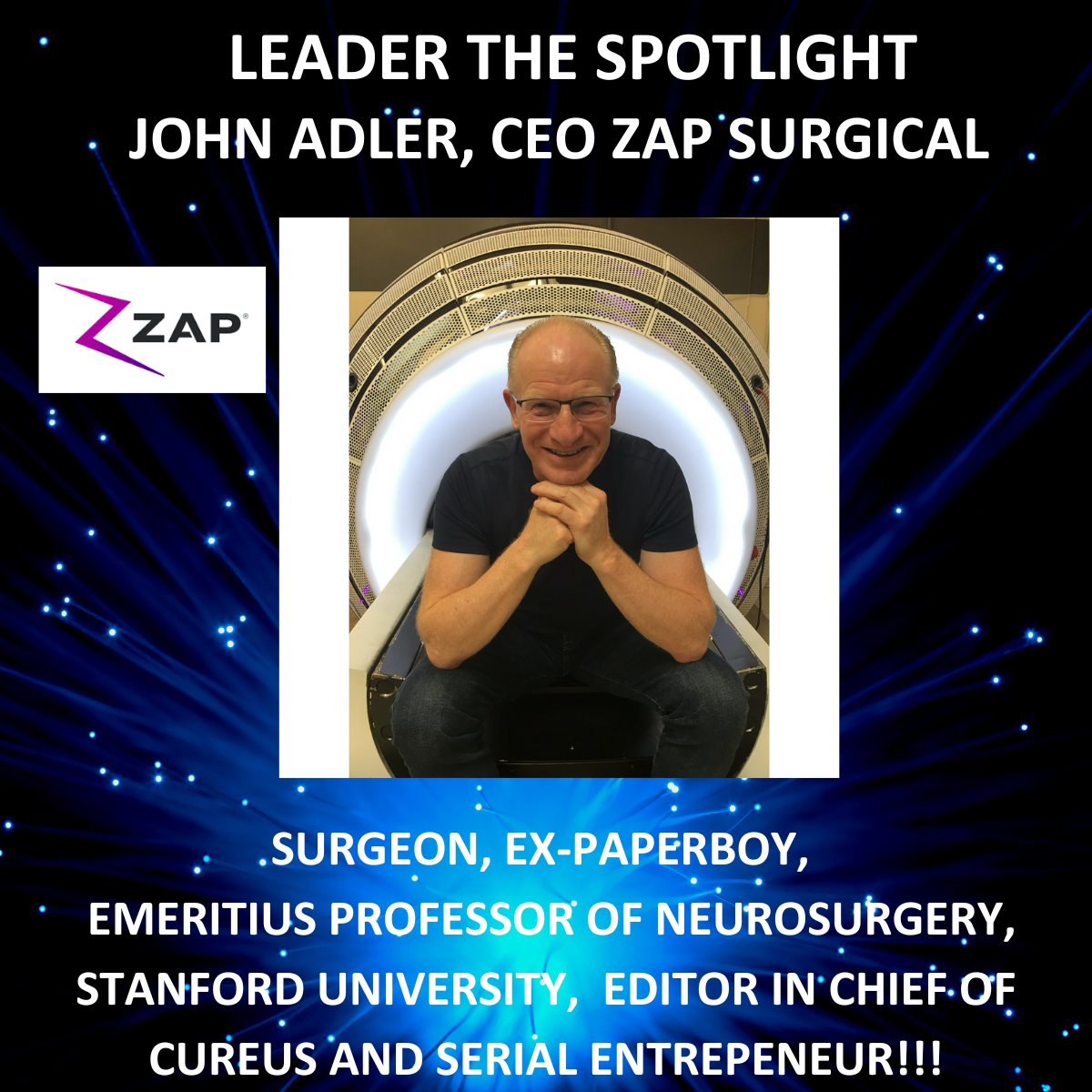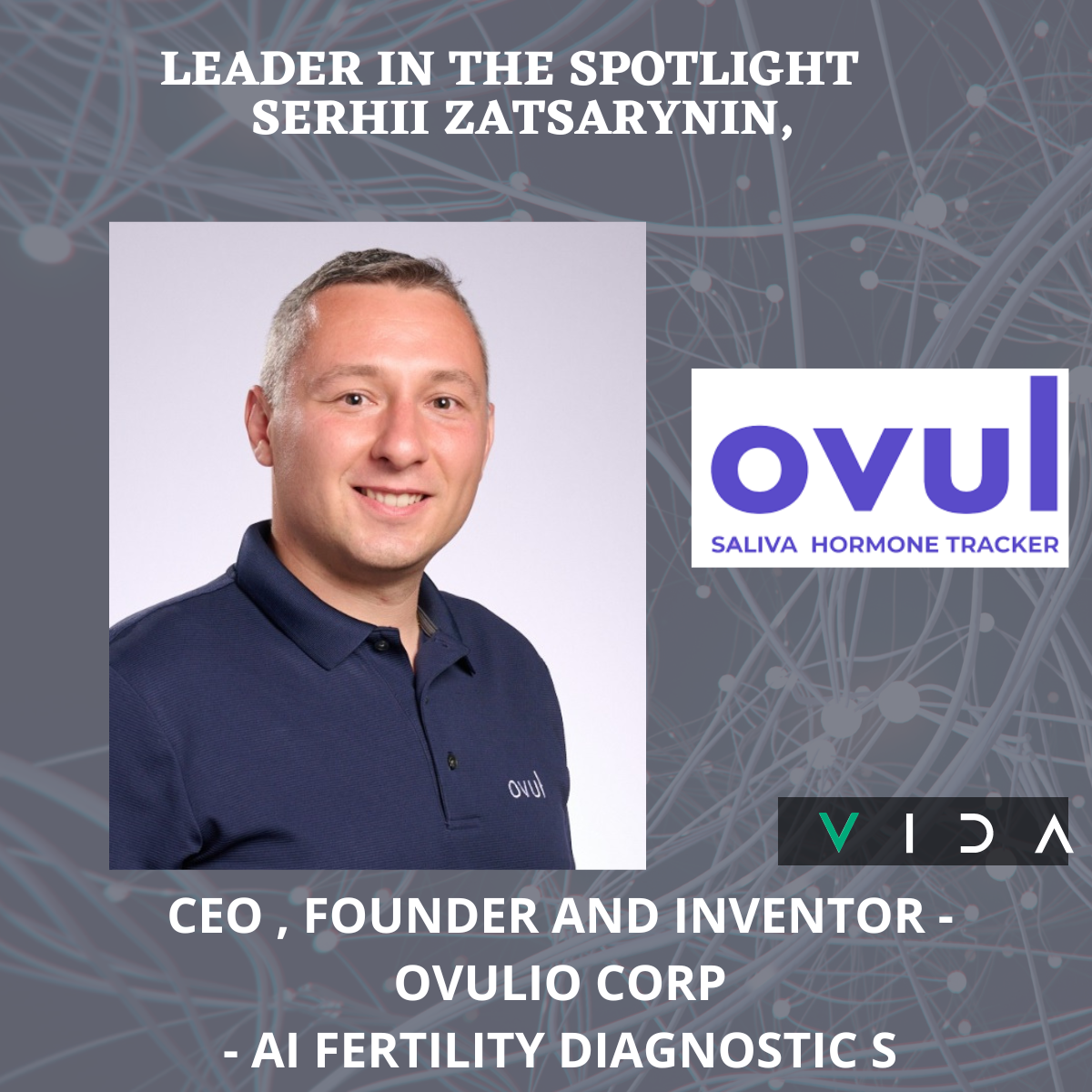
POSTED BY
Liz Moyles
This week I had the opportunity to speak with Mathieu Horras, who sat in his beautiful office in Switzerland. It was a pleasure to speak with Mathieu. He is a thoughtful person, an amazing listener and so very respectful of others.
Mathieu is the CEO of Aspivix, a company operating in Women’s Health, which is revolutionising the standard of care, the antiquated and very painful, single tooth cervical tenaculum, currently used in numerous gynaecological procedures such as inserting IUDs, hysteroscopy, cervical biopsies, fertility treatments, and more.
Over 120 million women world-wide annually undergo these procedures which cause too often pain, bleeding and tissue tearing. In fact, so much so, that many women, dangerously will avoid the whole procedure sometimes at a very high personal or even fatal cost.
Aspivix has found a way to negate the need for the cervical tenaculum which is as effective, painless and much pleasanter for both the patient and the practitioner. The solution is, Carevix™, the world’s first suction cervical stabilizer. It is both FDA cleared and has the CE mark. In a study the results showed it reduced the pain by up to 73% and the bleeding by 83% in IUD insertions.
In this interview, Mathieu shared his story on how running with a colleague at lunch time led to them both starting Aspivix and the values the team live by.
Mathieu’s family immigrated to France from Greece and Spain. He has lived and worked in many countries, and it is this understanding of cultures and the discomfort of being ‘different’ that has helped shape many of Aspivix’s very strong powerful values.
- Mathieu, I can see you are grinning because you know I am going to ask you, why you got into Medical Devices. Was this perhaps a dream as you played in the sandpit with your tractor or kicked a football around the field?
Ha ha…. yes- your favourite first question. The answer is no, but I did like playing with tractors and cars and I think that is why I went into the world of automotives as an Engineer after university. I was fascinated by engines and how things worked together, how you can design and redesign to achieve different functionalities, how you can improve and push boundaries using R&D engineering and NPI.
I only discovered Women’s Health later by chance. My wife is a midwife, she opened my eyes to women’s healthcare and medicine. I also met Julien Finci, the co-founder who told me about his brother, David, David Finci, a gynaecologist, also a co-founder at Aspivix, and the man who came up with the idea for Carevix.
- So, what was your first role in Industry?
My initial start in life was in the automotive industry at Renault. I enjoyed it – I started as a Junior Analyst and then became a Senior Engineer. Being part of such a large organisation has many benefits and I knew I desperately wanted to travel and experience the feeling of being surrounded by different cultures. This comes from the stories and details my grandparents shared with me. They emigrated to France from Greece in the first half of the 20th century, and it was a very strange and different experience for them to not be ‘natives’. I was fascinated by those experiences, and I knew I wanted to also get a taste of what it was like to be a ‘non-native’.
Renault allowed me to work in Brazil. I went there with my wife who I had known from being a teenager. We have been together forever.
Brazil is such a welcoming country. Everyone is super enthusiastic and positive. Successes are always celebrated whole -heartedly and failures or learnings are just taken on merit. It is a very different culture to France where we tend to actively look for mistakes.
I have worked in Japan, Brazil, the UK, been exposed to the USA and I now live in Switzerland as well as having been born in France. It has been so interesting to be immersed in all these countries, - interesting, sometimes uncomfortable and at some points lonely.
- So how did you go from cars to Medical Devices?
The first part of my career was in the car industry. Something was missing. I would see and hear how my wife was so deeply satisfied and rewarded by her work as a midwife and I wanted to feel that too. I suddenly thought I want to do something where I could actually make a difference to people’s lives more directly.
I decided to enrol on an MBA at INSEAD in Singapore. As part of that, I had a project at Nissan in Japan, and it opened my eyes. The internship in Japan was looking at Strategic HR issues for an organisation. It took me away from R&D and engineering and opened my eyes to other parts of a business.
During this time, my first son was born and when I was away in Japan, I actually felt a bit lonely. The Japanese language is hugely complex, and I truly experienced the challenges of communication. Looking backward, it was so enriching.
During my MBA, I decided I wanted to enter the Medical Devices’ field. I knew I had little going for me that would make me attractive to an organization in Medical Devices when compared to other talented individuals such as Medical Doctors or Biomedical Engineers. I had to find in this world a company willing to take risks and back me without what is typically seen as the necessary background and experience.
- What was your first role in Medical Devices and what did you think of the experience?
Whilst on campus at Philadelphia University (UPenn) finishing my MBA at Wharton, Danaher Corporation, a great company, which I still admire to this day and care for deeply, had a recruitment round. The interviews with them went really well and I was selected to join their Leadership Program. The intention was that I would do a series of placements in their Operating Companies and eventually lead one of them.
The program, in its inception in those days, did not really work effectively, as once one of the Operating Companies got hold of you, they didn’t want to release you to any of the others. Danaher is a powerful organization of strong individual Operation Companies acting almost independently under the parent company.
Rightly, the company could see that my skills were heavily weighted to engineering, and analytics with a gap in the commercial and marketing areas. I started out as a Senior Global Product Manager which was a great start due to the incredible blend of Marketing responsibilities combined with technical acumen. I occupied a few roles in Marketing, as well as a stint as a Field Sales Representative.
These experiences led me to become the Head of Global Marketing and Product Management, and I loved it! Back – again into a leadership role, associated with a greater understanding of how a company works commercially, and strategically, I really felt I could make a difference.
At Danaher, I was responsible for a great product line, dedicated to fragile preterm babies during their stay in neonatal intensive care units. That was a tremendous responsibility. I felt responsible for the life of those babies – and their families as they depended on the accuracy and the availability of our products.
This is one of the things I love about the Medical Devices Industry – the type of impact we can have.
- So How Did You End Up Leaving Danaher – Where Did the Idea for Aspivix Come From?
In great companies, you meet great people, and sometimes during the most unexpected conditions. Randomly, I took up running at lunchtimes with a colleague, called Julien, Julien Finci, the co-founder of what was to become Aspivix.
We would talk and he would tell me about his brother, a gynaecologist, who felt there was a better alternative to the single tooth tenaculum, used in numerous gynaecological procedures such as inserting IUDs, hysteroscopy, cervical biopsies, fertility treatments, and more.
His brother disliked using the device as it caused so much pain and bleeding for women. He also knew many women were deliberately avoiding necessary and vital procedures because of the uncomfortable experience. He believed there had to be a better solution to improve care for women in gynaecology.
- What was your reaction to the Idea for Aspivix?
To be honest? I was sceptical. I felt the cervical tenaculum had been around for more 100 years. Its design had been unchanged. Therefore, in my eyes, if it was the standard of care, it had to be right.
However, Julien, persistent as always, kept talking to me about it. He needed someone with a more commercial, entrepreneurial and strategic acumen to work with him. He asked me to consider this.
I agreed to listen, it’s one of my values. I suggested to do some limited market research and try to see if this had the size of the problem Julien’s brother, David Finci, said it had.
I was amazed! We surveyed over 1,000 people women and physicians, and it was a resounding positive that this was unpleasant, confirming all David had said.
There was a true unmet need, and Julien, David and I realized we had an incredible opportunity to do something ourselves to directly impact people’s lives.


Carevix™ image courtesy of ©Zuzanna Adamczewska-Bolle.

As a patient facing an invasive procedure, if you had the choice, which of these two devices would you prefer?
- So, is that when you set up Aspivix?
No. We weren’t that brave. Julien and I both had children- I had 3 at the point and I was the main earner in my home. It was so hard to take the risk of walking away from a payroll and a secure job to setting up on our own and not knowing what would happen.
So, in 2015, we went to the Senior Management at Danaher and explained our concept, and we asked if we could work at weekends and in our spare times after work on our idea without it being seen as a conflict of interest.
Amazingly, Danaher agreed, for which we were and are to this day and will be forever , grateful. But ultimately, after some time, you ‘can’t have your cake and eat it’, so when we felt our idea was getting ready, we ended our collaboration with Danaher in 2018 to set up Aspivix.
- Where does the name come from and has it got a special meaning?
The name "Aspivix" is a creative contraction that combines several meaningful elements related to the company's mission and focus:
1. Aspiration for the Future: The word "aspiration" reflects the company's forward-looking vision and ambition to innovate and improve women's healthcare. It symbolizes the desire to create better solutions and outcomes for patients.
2. Aspiration (Suction): In a more technical sense, "aspiration" also refers to the suction mechanism used in Aspivix's product, Carevix™, which gently stabilizes the cervix during gynecological procedures without causing the pain and trauma associated with traditional methods like the tenaculum.
3. Cervix: The "vix" part of the name is derived from "cervix," which is the area of the body that Aspivix's products are designed to treat more effectively and comfortably.
Together, these elements form "Aspivix," a name that encapsulates both the company's technological innovation in cervical care and its broader aspirations to redefine women's healthcare.
- That is so clever !!!! Thanks for sharing. I love learning the meaning behind names. So, tell me what was it like to be the CEO and to be pitching?
Becoming CEO of Aspivix was an incredibly exciting journey. In large organizations, life continues regardless of your role. You may think you're irreplaceable, but in reality, you're often just a unit, a number. In a small company or a start-up, you are far from just a unit. You are essential, making a direct impact—whether positive or negative—and the effects of your actions are immediately visible.
Pitching women’s health in 2018, and even today, has been and continues to be challenging. Back in 2018, investor rooms were almost exclusively male. Show them a drone, and they dream; show them a power plant, and they engage; show them a treatment for baldness, and they feel personally affected. But when you show them a 100-year-old barbaric device and explain how you can change the lives of 120 million women each year, the best response you might get is, ‘I’ll discuss it tonight with my wife and daughter.’ It’s difficult for male investors to relate. It took a village to find the right investor.
That’s why I deeply value our first investors, 4FOx Ventures. They have been incredible partners from the start, demonstrating true vision by investing in women's health at a time when very few venture capital firms were focusing on this space. Their willingness to back our mission speaks to their forward-thinking approach and confidence in the impact we aim to achieve. Jean-Pierre Rosat, representing 4FOx Ventures, now serves on our board, bringing invaluable insights and guidance
- On that point, tell me what you think about the situation with funding for the Healthcare of Women or Women’s Health – however, we want to term it.
The simple truth is that women’s healthcare has been a massively underinvested space, and it still is. The hard fact is that there have not been many exits- such as trade sales or IPOs- in this space, and VCs are particularly interested in exits to maximize returns for their funds. While angel investors may take risks and invest due to a combination of financial sense and emotional involvement in an idea, VCs tend to be more focused on the return on investment.
We need to get some successful exits in this space to increase the appetite of VCs.
The discussions we are having with VCs are not as challenging as they were 6 years ago. The needle is moving in the right direction. I can now sit in these meetings and talk openly about menstruation without a flicker of surprise or discomfort, which is a great improvement as the society evolves and is more open to discuss about women’s health conditions and issues.
The funds available are still not enough to drive the innovation we need considering that only less than 2% of the investment goes towards Women’s Health innovation, the road is a long one, but we are optimistic about the future for women.
- How is the lack of funding affecting startup’s?
In so many ways. Some never get off the ground. Some do but then must wrap up. We all struggle to be able to invade at the speed we want to or could do, if we had the funds. If we had the funds, we could be making such a difference to people’s lives so much sooner- maybe saving lives. We could hire the people with the skills we need, enter contracts for partnerships and distributions innovate more and faster, etc.
It’s affected us at Aspivix- I wish we could move faster. We have other ideas for products in the pipeline. Carevix™ isn’t the only one but for that, we need investment.
- You mentioned Strategics previously . I know Bayer are working with you. Tell me how did this come about and how do you both benefit?
Our partnership with Bayer came about through a shared vision of advancing women’s healthcare. Bayer, as a global leader in the pharmaceutical and healthcare industry, recognized the innovative potential of our technology and its alignment with their mission to improve patient outcomes. We were fortunate to connect with Bayer early in our journey, and their support has been instrumental in helping us scale our operations and expand our reach in Switzerland.
For us, the collaboration with Bayer brings immense value in terms of their deep expertise, and network. Their insights and support have allowed us to accelerate commercialization of Carevix™, ensuring that we can bring our solution to market more effectively and efficiently.
On Bayer’s side, they benefit from being at the forefront of innovative solutions in women’s healthcare, which complements their existing portfolio and strengthens their position as a leader in this field. The partnership is truly symbiotic, as it allows both of us to push boundaries and set new standards in the industry.
- I can see how well you align in this space. Congratulations on finding a true visionary partner. So that others may learn……..can you remember any particular mistakes you made along the way to today, which you might laugh at now?
Mistakes? – we’ve made plenty…. and some of those I can’t even smile about, but you know, that’s what learning is about. It’s like playing tennis. You may over hit, under hit, your serve may not be right, but you must learn from it, not to repeat it and concentrate on the next move. We could have been faster, we could have paid less, maybe we could have selected a better person.
- You have talked about values ealrier, and I know Aspivix has some core values that you really stand by. What are they and what do they mean to you?
Our values are Listen, Care and Make and we have an internal and an external meaning to each.
Listen comes from my experience growing up in France, in Aix-en-Provence. My father’s family emigrated to France from Greece in the first part of the 20th century. My father was the first-generation French person. My grandmother was amazing, she spoke 4 languages fluently. She was an exceptionally bright person, but while she could speak French, she would never be native.
I always wondered how such a bright person would feel having difficulties communicating her thoughts clearly when trying to converse. This made me see people through a different lens, allowing me to move beyond polished speeches. This is when I learned the value of listening. Really listening to the person who you may be facing- who may not always be able to communicate what they are trying to, but if given enough time, they will do so in a way which may deliver an idea, a meaning, a purpose you may lose by jumping in or speaking over them. It is a value which defines us at Aspivix.
This value was further cemented by my own experiences working in Brazil, the United Kingdom and Japan, where clearly, I was not a native and despite trying hard to speak fluently, I couldn’t always manage it. I too experienced the difficulty of not being heard or listened to and the frustration of not communicating effectively or concisely.
So, LISTEN means – we listen to the person until they finish. That is incredibly hard to do. Internally we listen to each other’s ideas, thoughts, opinions. Externally we listen to the customer.
At Aspivix, we started with the customer’s problems at the heart of things – not with a solution we need to find a problem to. It’s very different.
CARE - Externally, we care about our patients and physicians, and we develop products that are unique and simple to use- in fact they seem deceptively simple, but it takes a lot of genius to make something look intuitive.
Internally as people we have benevolence – if people, act, say something, act in a way that doesn’t fit, then we wait until the appropriate moment, till the time that person is ready to listen feedback, and we do it one on one in a private setting.
MAKE – Externally, we make sure that what we make is what the customers actually need. If they have an idea, we work with it or if we have an idea, we make sure there is a problem which that solution could answer by speaking to the customer first.
Internally by make – whenever we have a meeting, and we try to have as few as possible, we make sure there is an outcome.
- Those are powerful Values. I see you really mean and stand by them too Mathieu. So tell me , living those values internally, how and what makes the team at Aspivix unique?
The team at Aspivix is unique because of our deep commitment to innovation and our shared passion for improving women’s healthcare. We bring together diverse expertise from various fields—engineering, regulatory affairs, and business—all united by a common goal: to create meaningful change in an area that has been overlooked for far too long. Our team thrives on collaboration, embracing challenges as opportunities to push the boundaries of what’s possible. The diversity in our backgrounds and perspectives empowers us to approach problems creatively and develop solutions that truly meet the needs of our patients and healthcare providers. What truly unites us is our unwavering dedication to making a tangible impact in a market that has been underserved for too long.
- What next for Aspivix????
Aspivix is focused on expanding the impact of Carevix™ globally, ensuring that women everywhere have access to a gentler and more effective alternative for cervical stabilization. We are also working on new innovations in women’s healthcare, building on our core technology and expertise. In addition to product development, we’re actively seeking strategic partnerships and additional funding to accelerate our growth and bring our solutions to more markets. Our ultimate goal is to set a new standard in gynaecological care and continue driving forward the conversation around women’s health.
- I hope that you will soon attract new strategic partnerships and investment Mathieu- because I believe you have a unique and much needed range of solutions.
Finally, you know I love to finish by asking -Mathieu, what song gets you belting out a tune on the karaoke or dancing on the dance floor or around the kitchen?
Ah, that’s a fun question! If I had to pick one, it would probably be "Don't Stop Me Now" by Queen. It’s such an energizing and feel-good song that never fails to get me moving, whether it’s on the dance floor (I don’t dance) or just around the kitchen (I cook more). It’s also a great reminder to keep pushing forward and enjoying the journey.
Thanks, Mathieu, for this wonderful, inspiring and meaningful interview.
Please don’t hesitate to reach out to Mathieu for more information about this amazing company and its people!



